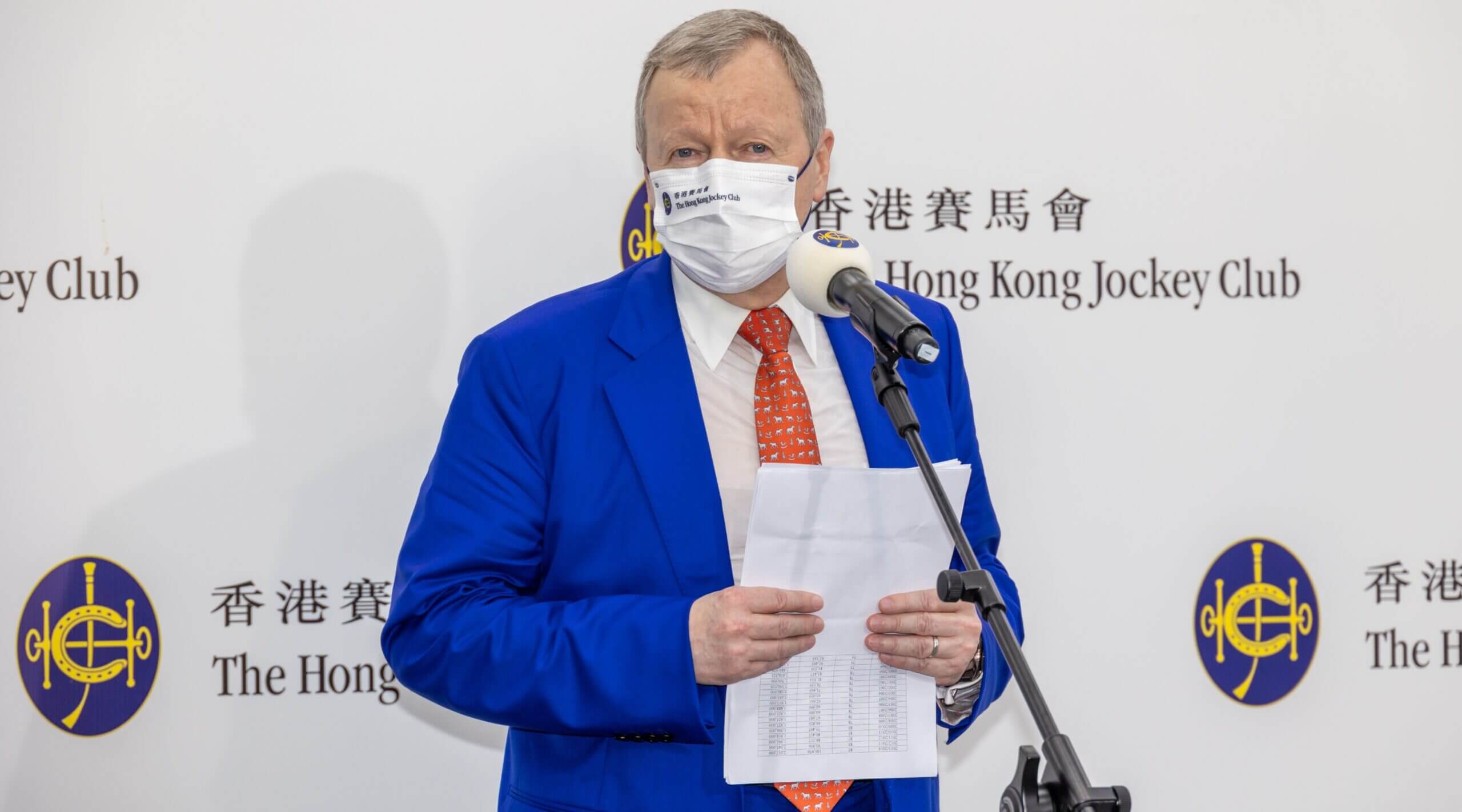“It is a very cautious approach to allow certain, very selective, international owner-breeders – but persons, not corporations – to be involved in Hong Kong racing,” said Winfried Engelbrecht-Bresges, the Club’s CEO.
“It is not open slather, but we want to strengthen the global reach of Hong Kong racing and there are people who we think can help but we will do this step by step.
“We are looking for connections that are not just horse owners but they are also connected to breeding. We have no policy to open up to the world for corporate owners, we are being selective, owners that have an interest in the breeding side. We want owners that are well known and have an international view.”
Hong Kong’s horse population is down in numbers due to Hong Kong’s owners struggling to purchase the right horses in a tough market against the backdrop of two years of Covid restrictions on travel.
A dearth of quality horses being available to buy and high prices being asked in Australia and Europe has meant that several owners who were allotted permits to buy a horse have handed them back to the Club unused, a situation that would have been unheard of in past years.
“It is about getting good horses here,” said Millard. “The last two or so years, trainers have spent a lot of money and come up with nothing. The market is tough, there is no doubt about it, you can’t get the horses out of Australia like you used to because the syndicates are so huge that no matter what you offer them, the smaller shareholders don’t want it. This has been, fundamentally, the problem.
“During Covid, none of the trainers were able to go out. For the first year, agents bought, and you should have seen what came. Nobody bought the next year, how can you? People were too scared because they had been burnt.”
Those difficulties have resulted in a depleted top bracket and the recent G3 National Day Cup, the first Group race of the season at Sha Tin, attracted a half-field of just seven runners.
“Frankly speaking, since John Moore left here, the quality of horses has gone down,” continued Millard, referencing the former champion trainer who led his peers in sourcing and training top-class tried imports until his enforced retirement in July 2020 at age 70.
“Nobody is saying that it hasn’t, it is a fact. When you look at it, we are something like 100 horses down on what we normally are and it has been very tough, the number has gone down, and the quality is not what it used to be.”









